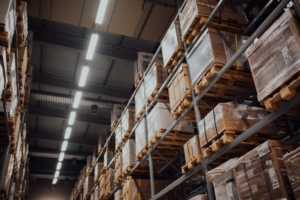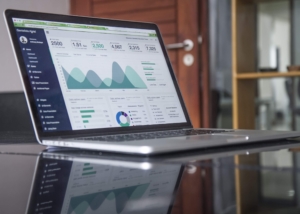Optimize Your Business Health: Why Now is the Perfect Time for a Small Parcel Transportation Checkup
Time for a Checkup!
Everyone knows how important it is to pay close attention to their personal health. Health guidelines will tell us that we need to have a physical once a year, see a dentist every six months, or to start having specific tests done once you reach a certain age. Failure to abide by some of these guidelines or ignoring environmental issues could have painful, even dire results.
It is even more important to get engaged with your doctors if you notice any changes in your body, like new aches and pains, less energy, or if just don’t feel right. We are fortunate that our bodies can provide us with signs that it is time to check things out!
Where are we going with this?
At this point, you might be wondering why a Logistics company is writing an article about personal health?? Well the reason for this is that we feel that you can draw a parallel between how you approach your personal health and the way that you address the health of your current Small Parcel Transportation program!
However, the difference is that there are no specific guidelines that tell you when it is time for a Small Parcel program checkup. Also, there may not be any obvious signs that you have issues with the health of your Small Parcel agreement or shipping program. Unfortunately, the uncertainty of how and when to examine your existing Transportation program can lead to undetected internal bleeding……. OF YOUR PROFITS!
Is it time for a Physical?
One of the first things that you need to consider when trying to determine if it’s the right time to assess the health of your Transportation program, is current market conditions. You need to “Check the Pulse” of the Small Parcel market, to determine if it’s safe to proceed. You don’t want to open negotiations in a market where capacity is tight, or when carriers are trying to boost margins. This could actually lead to worsening of health of your transportation program!
If you are wondering if current market conditions are appropriate to consider moving forward with an exploratory surgery of your Small Parcel agreement, the answer is an overwhelming YES! Recent developments in the Small Parcel arena have suggested that now is the perfect time to make a move.
Over the past few weeks, there have been some interesting developments with the major Small Parcel carriers that help to confirm that these carriers are, and will continue to battle for packages. First, there was the news that UPS had been awarded a significant air cargo contract by the United Stated Postal Service (USPS). This new agreement will greatly expand the existing relationship between the two organizations. The important thing to realize is that this business had been previously been handled by FedEx.
So, we feel that this will likely contribute to greater intensity in the battle for packages between UPS and FedEx. The loss in revenues that this will cause, along with the additional Air capacity this will create, will likely inspire FedEx to offer more competitive rates for Express packages. This will help to intensify the battle for Air packages that typically provide higher margins for Parcel Carriers.
From the UPS perspective, they are still pushing hard to win back volumes lost last year during the Teamster negotiations. We have recently heard from customers that they are seeing more aggressive UPS discounting and pricing, in an effort to win back their volumes.
Also, in an interview on CNBC on March 26th, UPS CEO Carol Tome’ outlined her “1+2” plan to improve UPS Financials. She described that year 1 initiatives will revolve around efforts to grow “Volume, Revenue and Operating –Dollars”, and that years 2 and 3 they will concentrate on “Volume, Revenue, and Operating –Margin”. So, in our eyes, this can only be beneficial for shippers as when carriers stress their desire for volume and revenue growth, it typically suggests a willingness to increase discounts.
So, to sum things up- It’s time to book your appointment with your Doctor!
How to choose a doctor?
So now that you know that is time for an assessment of your Shipping program, what do you do? You could just call in your carrier representative and tell them that you are looking for better rates, because you know that they are looking for volume. You can threaten to move your business “to the other guys”. However, we can tell you that this will most likely result in your carrier providing you with a lot of detail and presentations related to how their service provides tremendous value to your company. This will probably lead to a long, drawn out process, that will end with little or no movement on rates. Remember, the longer the process goes on, the longer you could be bleeding profits!
Basically, trying to negotiate your agreement without the help of the experts, is like trying to do your own personal health physical. Would you really consider checking all of your own vitals, and assessing your health based on information that you find on Google???
So, if you are really concerned about the health of your Logistics program you really need to engage with a company that has an in depth understanding of Carrier agreements and pricing. It is crucial to take a deep dive into the contents of your carrier agreements, including rates, discounts, and terms and conditions. You will need to understand how your agreement stacks up compared to other companies with similar shipping characteristics in order to determine if you have unhealthy agreements.
The best part of this is that the companies that provide these services (including ICC Logistics), do not charge a co-pay for a Transportation Program check-up!
Time for Surgery
Once the health of your Transportation and Logistics program has been properly assessed by a professional, they may find that you are in good shape and that there is no need for further action. Or they may find that you have some issues, and need to take action to avoid continued damage to the overall health of your business.
The bottom line is that there will need to be a solid strategy built to help cure the issues that are having a detrimental affect on your profits. This is the same thing that Doctors do when they identify a major health issue. They will prepare a plan of attack that will help to ensure the best outcome.
Please reach out to us today so we can explain how our surgical approach to negotiating Carrier contracts can help to ensure the long term health of your profits and business. We can assure you that you will be able to get an appointment with us a lot faster than you can get one with your Doctor!














